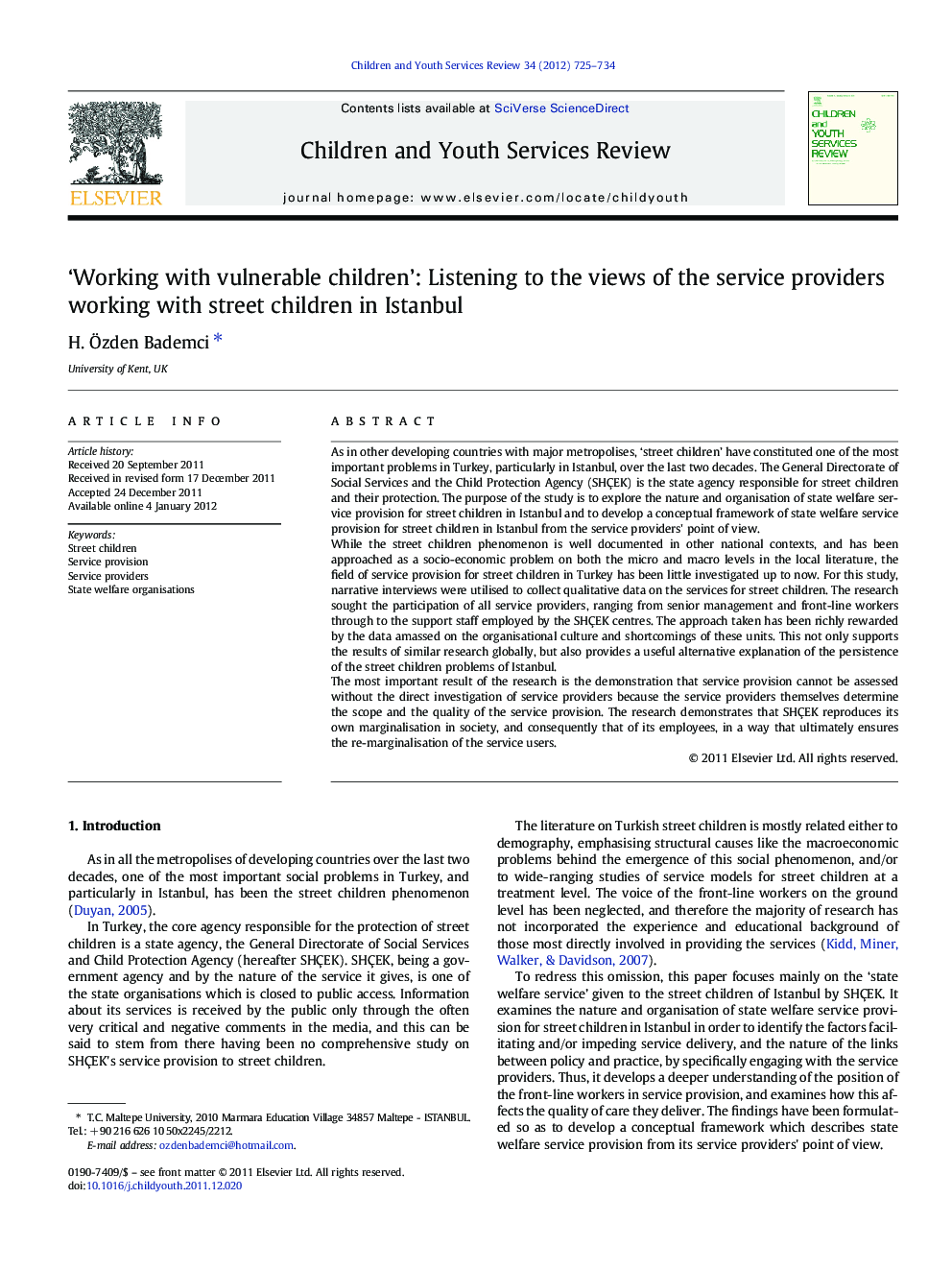| Article ID | Journal | Published Year | Pages | File Type |
|---|---|---|---|---|
| 347014 | Children and Youth Services Review | 2012 | 10 Pages |
As in other developing countries with major metropolises, ‘street children’ have constituted one of the most important problems in Turkey, particularly in Istanbul, over the last two decades. The General Directorate of Social Services and the Child Protection Agency (SHÇEK) is the state agency responsible for street children and their protection. The purpose of the study is to explore the nature and organisation of state welfare service provision for street children in Istanbul and to develop a conceptual framework of state welfare service provision for street children in Istanbul from the service providers' point of view.While the street children phenomenon is well documented in other national contexts, and has been approached as a socio-economic problem on both the micro and macro levels in the local literature, the field of service provision for street children in Turkey has been little investigated up to now. For this study, narrative interviews were utilised to collect qualitative data on the services for street children. The research sought the participation of all service providers, ranging from senior management and front-line workers through to the support staff employed by the SHÇEK centres. The approach taken has been richly rewarded by the data amassed on the organisational culture and shortcomings of these units. This not only supports the results of similar research globally, but also provides a useful alternative explanation of the persistence of the street children problems of Istanbul.The most important result of the research is the demonstration that service provision cannot be assessed without the direct investigation of service providers because the service providers themselves determine the scope and the quality of the service provision. The research demonstrates that SHÇEK reproduces its own marginalisation in society, and consequently that of its employees, in a way that ultimately ensures the re-marginalisation of the service users.
►Service providers determine the service provision (SP). ►SP for street children cannot be assessed without the direct investigation of staff. ►SP could promote remarginalisation of the service users.
